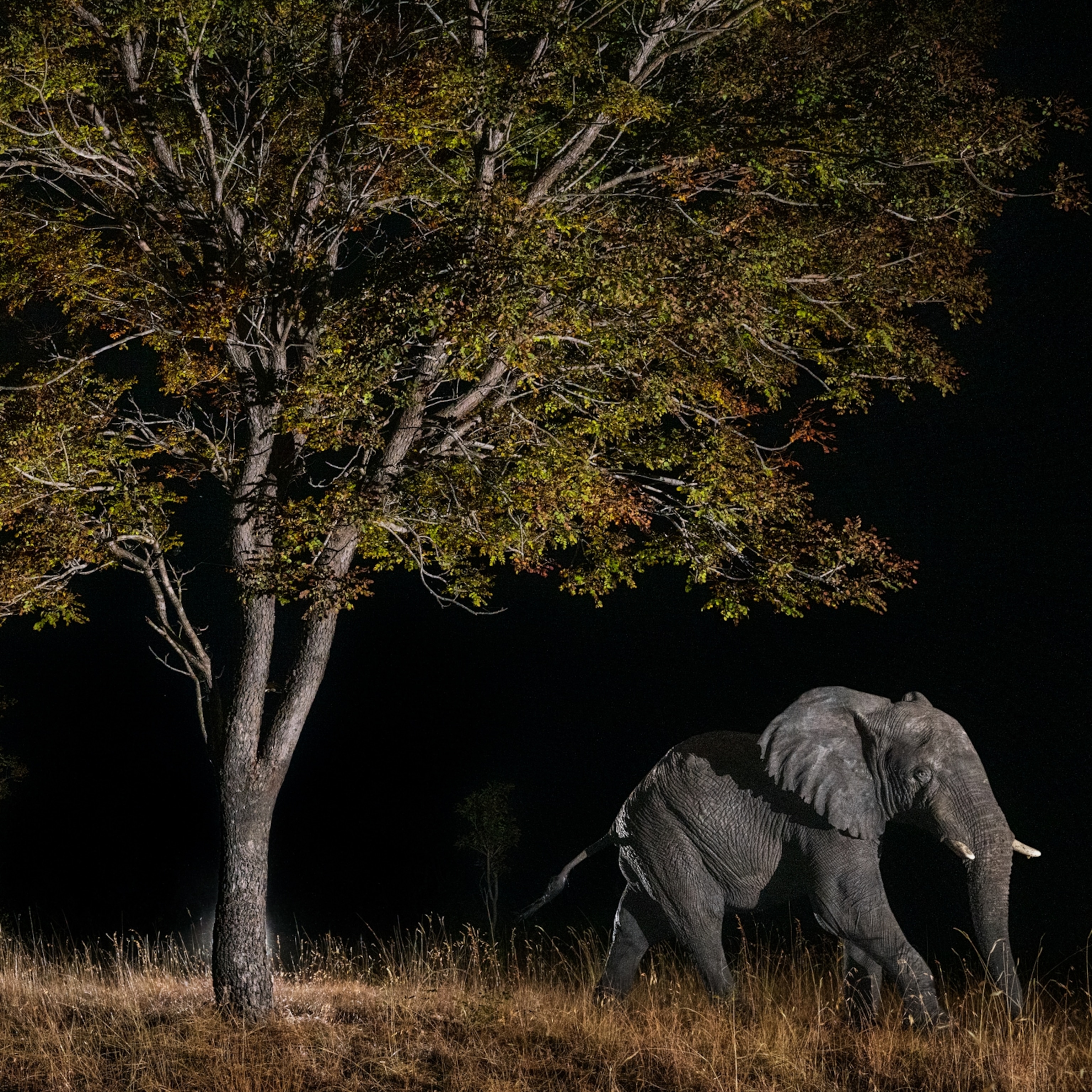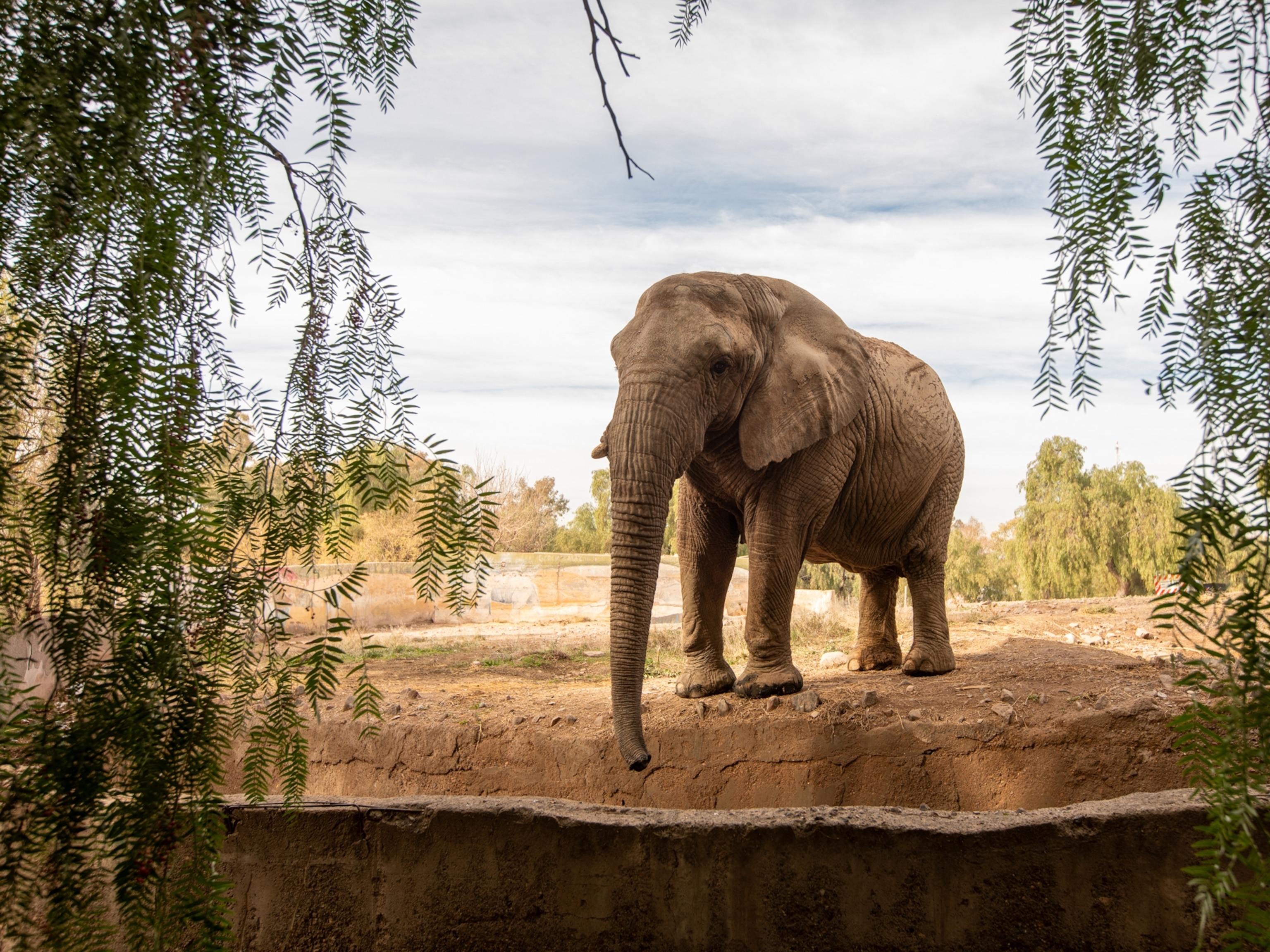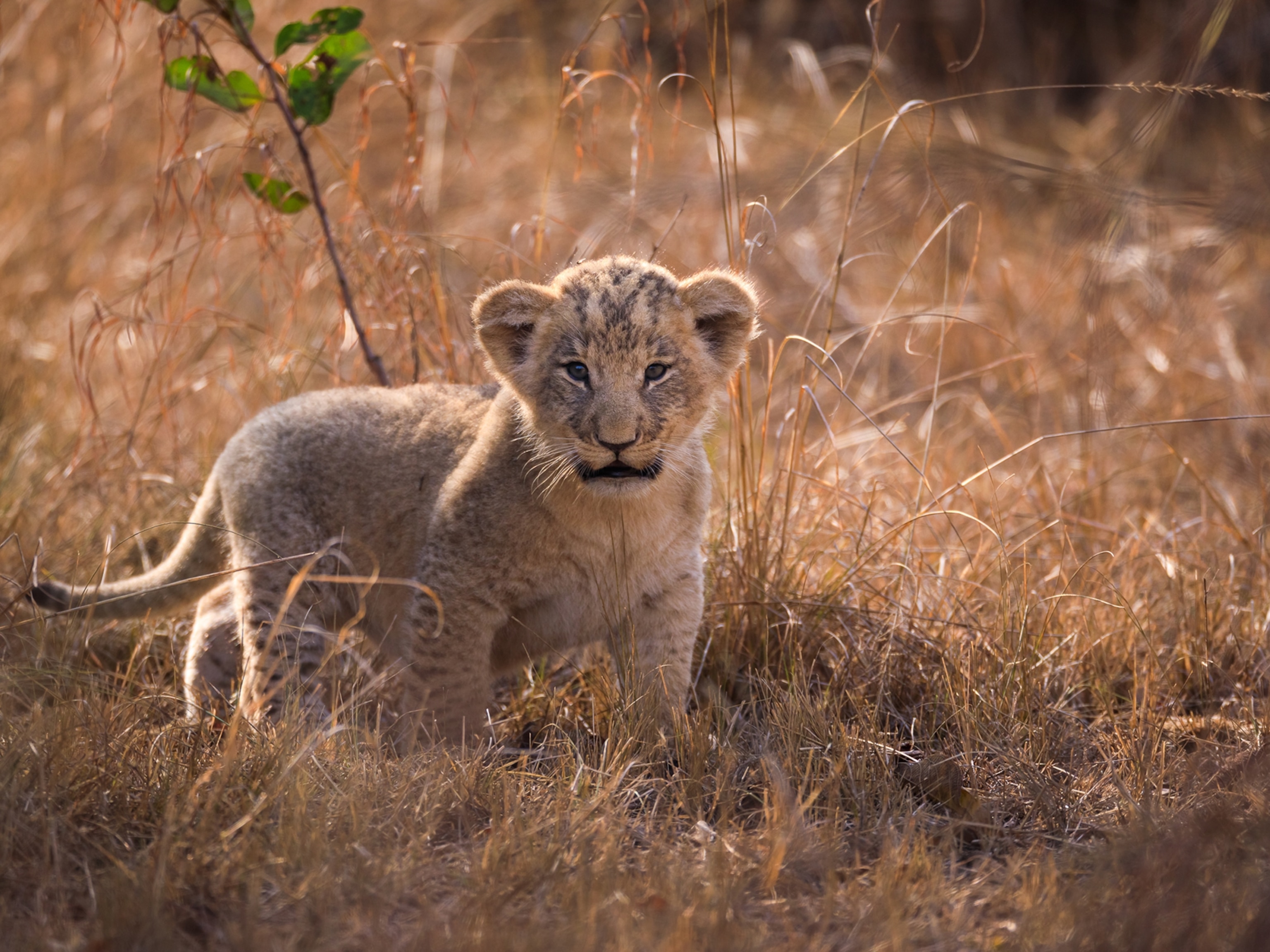
It's Time to Accept That Elephants, Like Us, Are Empathetic Beings
Elephants help each other in distress, grieve for their dead, and feel the same emotions as each other—just like us.
Elephants, we all know, are in peril. We humans are waging what amounts to a war against them because they have something we want and cannot make on our own: ivory.
The West African country of Gabon holds most of Africa's remaining forest elephants. Their main stronghold, Minkebe National Park and its surrounding buffer zone, was home to an estimated 28,500 elephants in 2004. By 2012 the number had plummeted to about 7,000—a loss of 20,000 or more elephants.
People are shooting, poisoning, and spearing the animals at such a rate across the continent that some scientists already consider them "ecologically extinct." There are now fewer than 500,000 wild African elephants—maybe no more than half that number—and barely 32,000 Asian elephants.
They cannot fight against us; they cannot win this battle.
And the horror of what is happening to them is surely compounded in their minds by the empathy they feel for one another—an emotion that scientists have at last been able to demonstrate experimentally in elephants.
Elephant Empathy: One Example After Another
But why did it take an experiment? Research on elephants is full of examples of the animals apparently behaving empathetically—recognizing and responding to another elephant's pain or problem. Often, they even make heroic efforts to assist one another.
In Kenya, researchers have watched mother elephants and other adult females help baby elephants climb up muddy banks and out of holes, find a safe path into a swamp, or break through electrified fences.
Scientists have spotted elephants assisting others that are injured, plucking out tranquilizing darts from their fellows, and spraying dust on others' wounds.

And on at least one occasion, researchers have watched an elephant struggle to help a dying friend, lifting her with her tusks and trunk, while calling out in distress.
Aren't such accounts sufficient for scientists to say unequivocally that elephants, like us, are empathetic beings?
Sadly, no. For various reasons—some scientific, some philosophical, some religious, some economic—we have set the bar exceedingly high for recognizing emotions (other than anger and fear) in other animals.
Saying absolutely that elephants (or other animals) are empathetic requires an experiment, something that is difficult to do in the wild. Experiments mean that these are not chance observations—the results are repeatable.
To show that elephants experience the same emotions another is feeling, scientists watched captive Asian elephants in a park in Thailand. They noted when one elephant was upset by something, such as by a snake in the grass, and they recorded her behaviors to see if there was a pattern.
There was. In response to a stressful event, an elephant flares out her ears, erects her tail, and sometimes makes a low rumble. Scientists watching elephants in the wild have reported the same behaviors. (See "Surprise: Elephants Comfort Upset Friends.")
Emotional Contagion
Both in the wild and in this captive study, researchers have watched other, nearby elephants react to the other elephant's distress by acting in exactly the same way. Scientists call this emotional contagion.
The elephants also ran to stand beside their friend, touched her with their trunks to soothe her, and made soft chirping sounds. Sometimes one would even put her trunk inside the other's mouth, a behavior elephants find particularly comforting, the researchers say.
We do something very similar when watching a scary movie with a friend. When the main character is threatened, we feel his fear. Our hearts race, we may tremble, and for reassurance, we reach for our friend's hand.
The researchers also recorded what the elephants did when they were in the same locations with their same friends nearby, but nothing stressful occurred. In those moments, none of the elephants acted in an empathetic way.
By comparing the two types of events—stressful versus nonstressful—the scientists were able to say that "emotional contagion" occurs only when an elephant sees another in distress.
Some scientists may still argue that this is not sufficient evidence for true empathy, that the experiment doesn't reveal what's going on in an elephant's mind when she rushes to aid a friend or worries over a dying companion.
But the fact that elephants make any effort at all on another elephant's behalf suggests that they are at the very least highly aware and emotional beings, concerned in some manner for each other.
Do They Know We're Destroying Them?
We cannot know for certain if African elephants know that they're under attack, that we're wiping them out across the continent. There are few, if any, survivors from most poaching events, and those that do make it can't tell us of their trauma. We'll never know what elephants may have witnessed or heard in the forest while their friends and relatives in other families were being slaughtered.
We have some idea, though, because in South Africa in the late 20th century, wildlife officials authorized the killing of entire elephant families in some fenced parks, such as Kruger. The officials worried that if a fenced elephant population grew too large, the animals would consume all the vegetation—so they culled the elephants.
Somehow, other elephant families in the park knew this was happening. Perhaps it was the cries of terror as the animals were shot. Or perhaps those being killed were able to emit low rumbles that carried the news for miles.
Immediately after a culling operation—and even after rangers cleaned up the area, removing all the bodies—other elephant families would come to the scene. They inspected the ground and smelled the earth, and then the visiting elephants left, never to return.
Observers say that even when the area where a culling took place was good habitat for elephants, the animals chose not to live there.
What happens now where poachers kill elephant families and herds? Do the animals, filled with empathy for what the others suffered, come to investigate the killing fields? Do they abandon those awful precincts forever?
Those studies have yet to be made. But in the meantime, can we put our empathy to use in finding a way to help the elephants? Can we put an end at last to the poaching?
Virginia Morell is a correspondent for Science and the author of four acclaimed books. Her newest, Animal Wise: The Thoughts and Emotions of Our Fellow Creatures, has received several honors, including a Notable Book for 2014 award from the American Library Association and a Best Book of the Year designation from Kirkus Reviews. She lives in Oregon with her husband and their working farm collie, Buckaroo.
Correction: An earlier version of this piece incorrectly stated that Gabon has lost more than half its elephants—11,000—in the last ten years. It is known with a high degree of confidence that in a recent eight-year period, the loss in just one Gabon park approximated 20,000 elephants.







